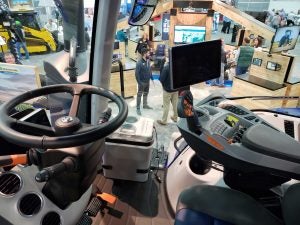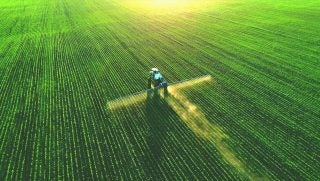What was Ann Coulter thinking? Farmers and other agriculturalists have been asking that question since the popular media pundit tweeted a belittling and disparaging characterization of the industry, regurgitating a misconception about agriculture’s lack of technological know-how.
She said, “If farmers ran the world, we’d still be sweeping, instead of vacuuming, and washing our clothes in rivers, instead of washing machines./Why should Americans be forced to subsidize this one industry’s refusal to move into the 1900s?”
If farmers ran the world, we’d still be sweeping, instead of vacuuming, and washing our clothes in rivers, instead of washing machines.
Why should Americans be forced to subsidize this one industry’s refusal to move into the 1900s? https://t.co/WAO60D4ATX
— Ann Coulter (@AnnCoulter) October 19, 2022
What Coulter doesn’t seem to grasp is that today’s farmers utilize precision GPS and autosteer technology to pinpoint seed placement and limit overlap and excessive use of crop protection products. Farmers also explore the science of soil, where nutrients and organic activity can function to augment crop yields. Ag’s application of biotechnology helps to reduce food insecurity worldwide. The industry embraces the science of livestock breeding, and more and more companies are unveiling robotic technologies that use a variety of complementing sensors and machinery to limit the need for manual labor in fields.
Her perspective on subsidies is skewed too, because subsidies allow consumers to ultimately have more affordable food, rather than farmers charging the food supply chain the real amount of what it costs to produce products.
Jonathan Lawler, known as The Punk Rock Farmer, had choice words for Coulter in a Facebook post: “Instead of bashing ALL farmers, she could ask how can we get farmers off subsidies or fix the system to where everyone can make money with government subsidies. Concentrate on the cronyism that created that. I’ll still support farmers who take subsidies because that is the world we live in and until it is fixed, I’m still in support of ALL farmers. It is way too complex for that shill to even comprehend and is just trying to be her normal shocking vile shill self.”

Farmers have been right to be asking: What was Ann Coulter thinking?
But, perhaps worse than that, we should be asking if she’s thinking what the majority of the public is thinking about the farming industry. Coulter has long been held up a conservative champion, the same political leaning that connects with most of rural America.
And if she can get this so wrong, it’s starting to make sense how those even further removed from our agrarian communities can misunderstand what today’s agricultural industry is all about. Perhaps we can understand now how agriculture gets a disproportionate amount of blame for things like climate change and environmental pollution.
It probably comes as no surprise that many agricultural advocates were quick to push back against Coulter’s statement and even invite her for discussions about what agriculture is really like.
Zach Johnson, popularly known as Millennial Farmer across social media, shared this:
Watch on TikTok
Others voiced their disgust with Coulter and amplified the hashtag #talktoafarmer:



Agriculture is not a stagnant industry — far from it, in fact. With each new generation seeing the adoption of amazing advances in machine technology and plant and animal genetics, agriculture is one of the most forward-looking sectors in the U.S.
There’s no question that a rise in the small farm/homestead movement nurtures the idea that compact tractors, hand tools, and manual cultivation of our food is somehow “better,” but that movement is not indicative of the whole of farming. It has its place, but it’s a very small piece of the broader high-tech work of America’s production farmers and ranchers.


